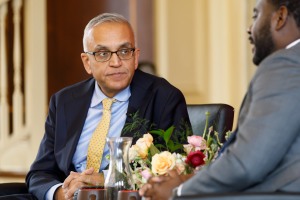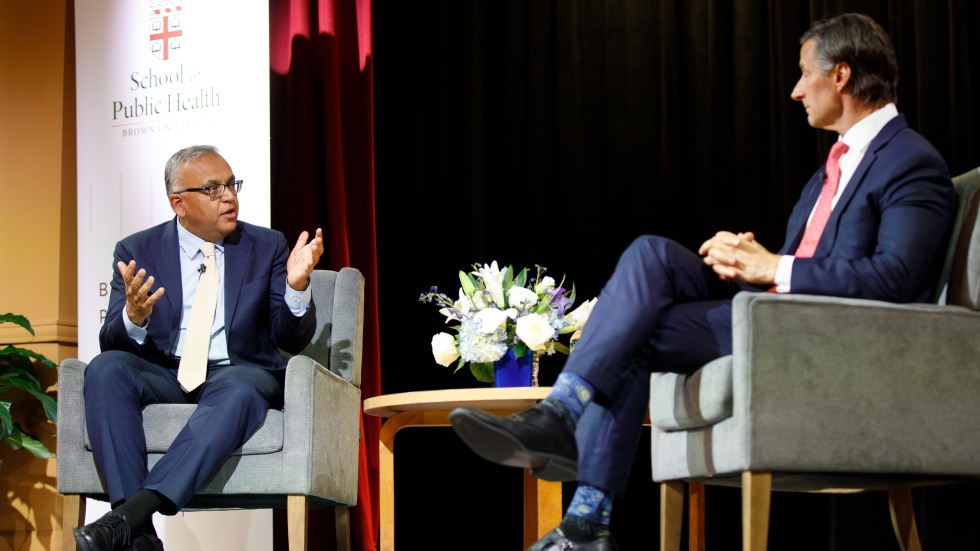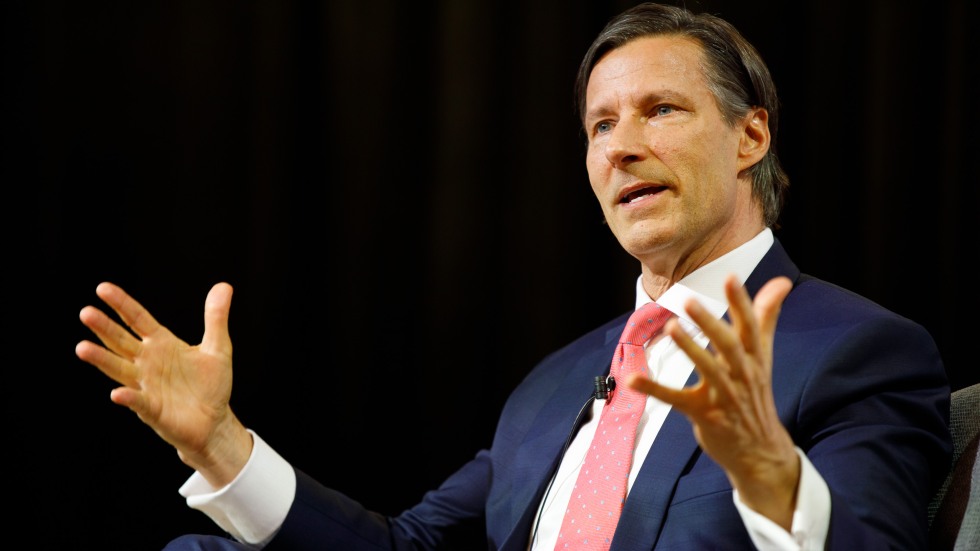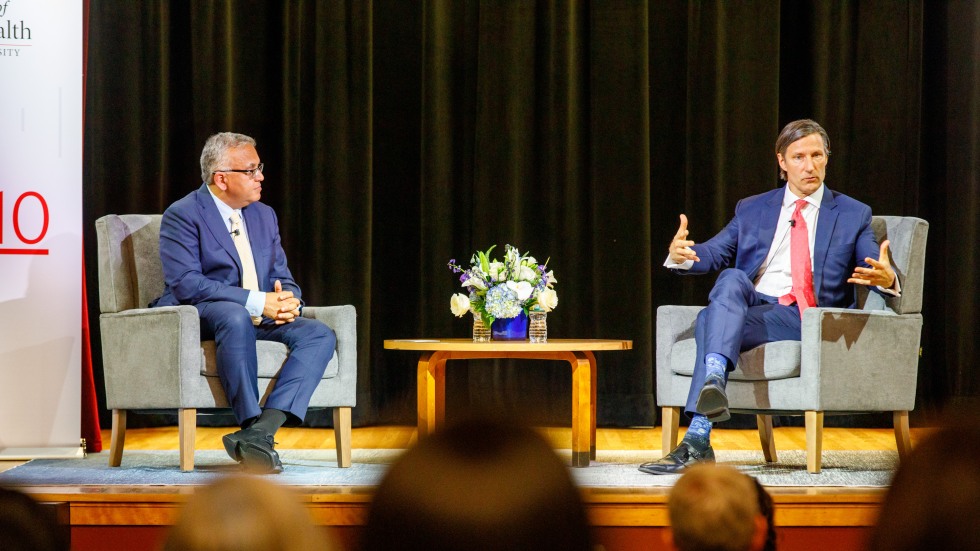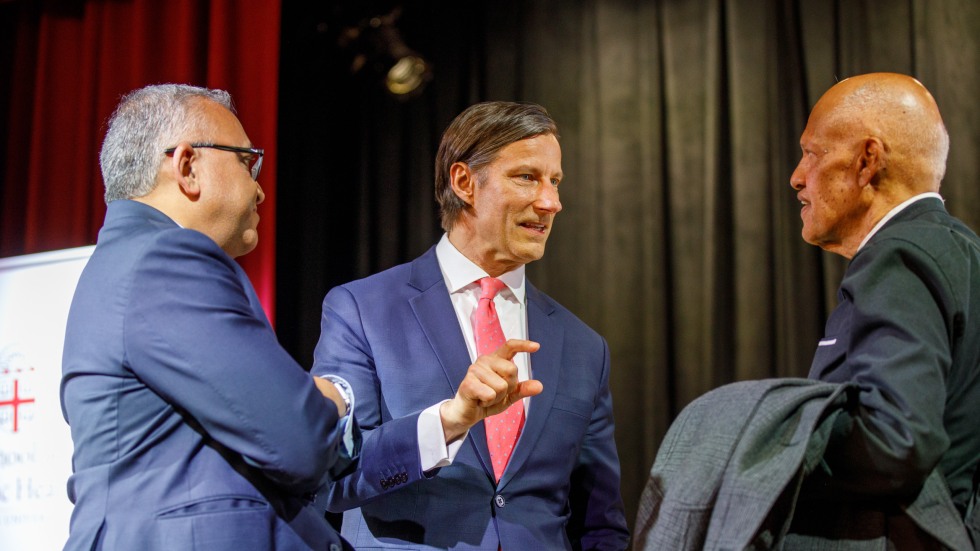On April 16, the Brown University School of Public Health hosted the 25th Annual Dr. and Mrs. Frederick W. Barnes, Jr. Lectureship in Public Health at the Providence Public Library. Dr. Craig Spencer, associate professor at Brown, introduced Dean Ashish K. Jha and keynote speaker, Michael VanRooyen, M.D., MPH, a prominent figure in global humanitarian efforts.
The event centered on a conversation between Jha and VanRooyen on the nature of humanitarian work, emphasizing the need for adaptability, professionalization and sustained public and political engagement in addressing humanitarian crises. They specifically highlighted the complexities of humanitarian relief efforts in Gaza.
VanRooyen, who founded the Harvard Humanitarian Initiative, brought a wealth of experience from his leadership roles in over 30 conflict and disaster zones, including Rwanda, Somalia, Bosnia, Palestine and Ukraine, as well as domestic crises like Hurricane Katrina and the COVID-19 pandemic. In 2012, he established the Humanitarian Academy at Harvard to further professional development for leaders in this field.
Raised in a large family with a mother who battled cancer, VanRooyen spent much of his childhood in hospitals where he kindled a commitment to aiding vulnerable populations. His early work as an emergency physician during the Somali Civil War highlighted the needs and professional shortcomings in humanitarian efforts. This experience motivated him to integrate public health with medicine and focus on training the next generation of humanitarian workers.
